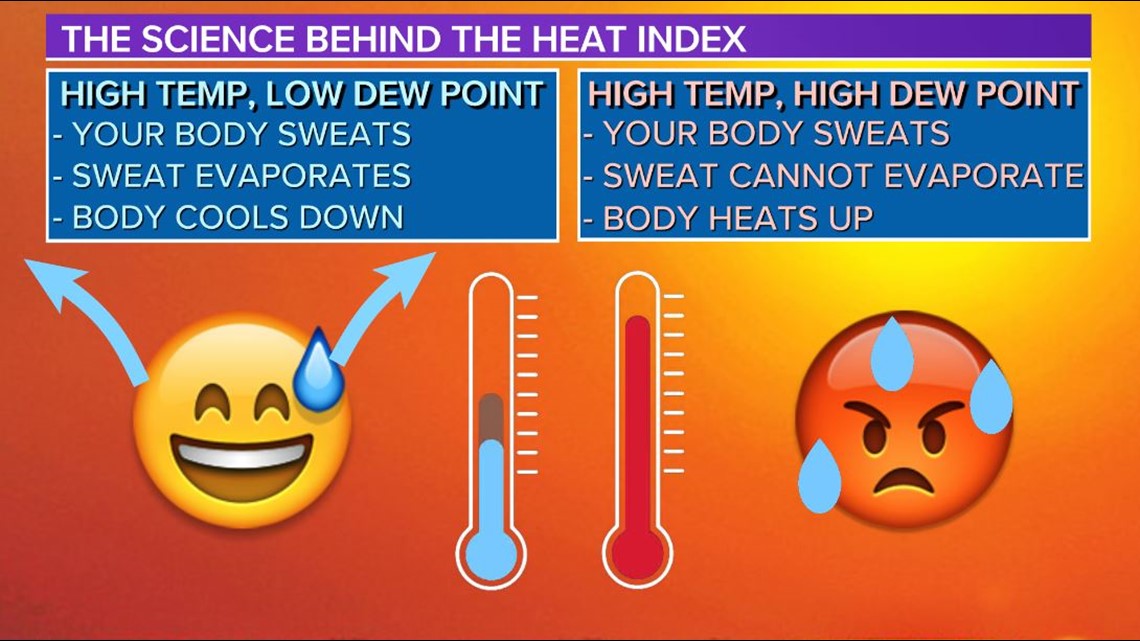COLUMBIA, S.C. — The Midlands are known for being famously hot and most days the heat actually feels higher than what the thermometer reads.
Meteorologists talk a lot about the heat index in the summer, or what your body actually perceives the temperature to be outside. This is a value that combines the temperature outside with the dew point.
Before we dive into the science behind the heat index, we need to understand the definition of the dew point. The dew point is the temperature the air needs to be for water droplets to form. The higher the dew point is, the greater the amount of moisture there is in the air.
On a hot day with low dew points, your body will sweat. That sweat then evaporates off of your skin, cooling you off via evaporative cooling.
On the other hand, if it's hot outside with high dew points, you will not get the same relief. Your body will still sweat, but because the atmosphere has more moisture in it, your sweat won't leave your skin. This makes your body feel hotter when outside than the actual temperature.


The heat index, or feels like temperature, is the temperature your body will perceive the outside air to be on a hot and humid day.
When the heat index goes above 100 degrees, it can become dangerous. It is important to stay as cool as possible and indoors when this happens.
Other ways you can beat the heat include wearing clothing that is loose fitting and that has light colors. Make sure you drink plenty of water and try and avoid alcohol, which can further dehydrate your body. Also, make sure to check in with kids, the elderly, and pets who can be more susceptible to the heat.
RELATED: Local Forecast

